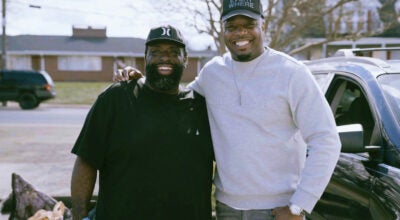Phyllis Martin is Rowan’s chief cheerleader for literacy
Published 12:00 am Tuesday, December 1, 2009
By Deirdre Parker Smith
dp1@salisburypost.com
It’s very difficult to get Phyllis Martin to talk about herself.
“No, no,” she says, “let’s talk about the Literacy Council. … That’s so much more interesting.”
So to learn the fascinating tidbits about the president of the Rowan County Literacy Council, you have to sneak around.
Ask Daisy Boyd, the council’s administrative assistant, and she’ll say, “She’s had a very fascinating life.”
Then she ticks off a list and begs, “please don’t get me in trouble.”
Well, Martin is self-effacing and reluctant to blow her own horn.
She’s volunteered with the council for 14 years and shows no sign of stopping.
She will happily share statistics such as, “The council has trained more than 800 tutors since 1978. … It was founded in 1976. … We have 45 active tutors. … Last year we served 158 individuals and there are seven waiting to get in now.”
Once she retired from paid work, she decided she would go ahead and get the training to be a literacy tutor. “I had wanted to do this. I hadn’t had time.”
Catherine Safrit and Dot Hurley trained her, and Mitchell Monk was her first student.
He was 76 and had never learned to read, despite a lifetime of working to support his family. Most of his jobs were on the farm, and when he couldn’t read the instructions on a new piece of equipment, he’d figure out how to operate it himself.
The one thing he wanted most was to be able to read the Bible. Martin worked with him for more than three years.
“You get hooked on a student,” Martin said. “Then they asked me to be on the board, then to be secretary and … here I am.
“It’s very rewarding.” United Way funds the agency and other supporters ask about the successes.
One of Martin’s favorites was when Monk came in one day and said, “You know what? I can read those street signs.”
Another student told her, “You see that sign there? It says the library is closed July 4th.”
One of Martin’s students was sweeping up at a fast food restaurant, the lowest-paying job there. Once she learned to read, she was promoted to chicken fryer, because she could now read the recipe.
“People have said, ‘You interfere in people’s lives.’ Precisely,” Martin said with a smile.
People seek literacy tutoring for a variety of reasons ó to pass their graduate equivalency exam, to get a job, to read the Bible. Some drop out quickly ó Martin said 50 percent drop out in the first six months ó some stay for the entire program and then come back for more.
“Many of these adults were promoted along, some were taken out of school to work in the mills, and you didn’t have to read for that.” Now that those jobs are gone, many people in their 50s are just learning to read.
One helpful addition to the program has been kits from banks that help people learn about checking accounts. Once, tellers would fill out paperwork for customers, but those days are mostly gone as banks have merged and changed.
Another thing that confuses people who can’t read is when labels change on groceries.
Martin has told these stories again and again.
She’s sitting in the council’s new spot at Rowan Public Library, on the second floor near the computers. “We’re lucky to be in a library with all these resources,” she says.
When pressed for a short biography, Martin brushed over a few things. “I worked at the Belk distribution center in Charlotte for a while. I worked in a bank, the Metropolitan Museum of Art, a lot of non-profits.”
Hold it, the Met? Daisy Boyd confirms it. “She worked at Columbia University, she’s met the Shah of Iran,” when she was a child, Martin used to see Eleanor Roosevelt walking down the streets of New York. “She taught Basil Rathbone’s children in Sunday school.” Rathbone was a famous actor. “She was in the crowd in New York when that famous picture of the sailor kissing a girl at the end of the war was taken,” Boyd says.
“She’s very sophisticated and elegant but very easy to talk to. She is sooooo smart. She never stops learning,” Boyd says.
“I learn on a need-to-know basis. She wants to learn as much as she can about everything.”
That may be why she’s so successful as a tutor and trainer.
“We ask a lot of our volunteers,” she says, but no more than she gives, which is at least 40 hours a week, training, tutoring, doing administrative tasks.
“Volunteers get hooked and do more and more,” she says, again proving her point. But she praises people who have volunteered for 25 years and are still teaching.
She has no time for hobbies, but she reads a lot, and her favorite books are mysteries, authors like Ann Perry, William Tapply, Michael Connelly.
“I love to travel, but I don’t do that much anymore.”
She learns about the world from the people she tutors, like a woman from El Salvador. She asked her to write stories about her family, and the woman did, leaving Martin hanging in a story about her son wandering off. “But what happens next?” she asked her. “You have to wait until next week!” the woman said.
She’s now tutoring a couple from “ex-Yugoslavia. They said they weren’t sure what the country is called now.”
What’s the best part of her volunteer job?
“Golly, I don’t know,” she says. “The students.” She pauses. “The volunteers.” Another pause. “Their commitment.
“Sometimes you don’t know till years later what effect you’ve had.”


